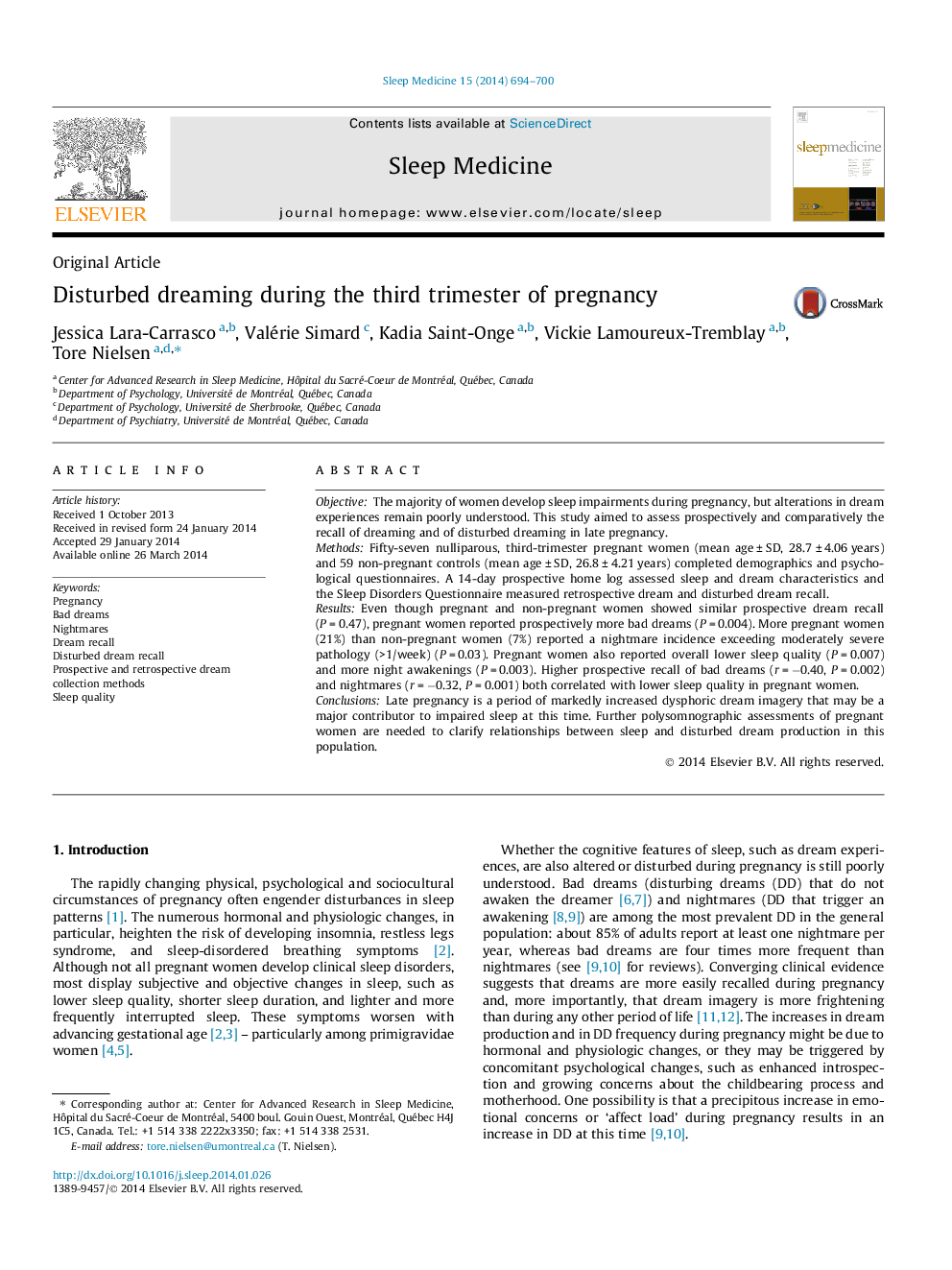| کد مقاله | کد نشریه | سال انتشار | مقاله انگلیسی | نسخه تمام متن |
|---|---|---|---|---|
| 3176126 | 1200247 | 2014 | 7 صفحه PDF | دانلود رایگان |
• We prospectively and comparatively assess the recall of dreaming and of disturbed dreaming in late pregnancy.
• Pregnant women report prospectively more bad dreams.
• More pregnant women than non-pregnant women report a nightmare incidence exceeding moderately severe pathology (>1/week).
• Higher prospective recall of bad dreams and nightmares both correlate with lower sleep quality in pregnant women.
ObjectiveThe majority of women develop sleep impairments during pregnancy, but alterations in dream experiences remain poorly understood. This study aimed to assess prospectively and comparatively the recall of dreaming and of disturbed dreaming in late pregnancy.MethodsFifty-seven nulliparous, third-trimester pregnant women (mean age ± SD, 28.7 ± 4.06 years) and 59 non-pregnant controls (mean age ± SD, 26.8 ± 4.21 years) completed demographics and psychological questionnaires. A 14-day prospective home log assessed sleep and dream characteristics and the Sleep Disorders Questionnaire measured retrospective dream and disturbed dream recall.ResultsEven though pregnant and non-pregnant women showed similar prospective dream recall (P = 0.47), pregnant women reported prospectively more bad dreams (P = 0.004). More pregnant women (21%) than non-pregnant women (7%) reported a nightmare incidence exceeding moderately severe pathology (>1/week) (P = 0.03). Pregnant women also reported overall lower sleep quality (P = 0.007) and more night awakenings (P = 0.003). Higher prospective recall of bad dreams (r = −0.40, P = 0.002) and nightmares (r = −0.32, P = 0.001) both correlated with lower sleep quality in pregnant women.ConclusionsLate pregnancy is a period of markedly increased dysphoric dream imagery that may be a major contributor to impaired sleep at this time. Further polysomnographic assessments of pregnant women are needed to clarify relationships between sleep and disturbed dream production in this population.
Journal: Sleep Medicine - Volume 15, Issue 6, June 2014, Pages 694–700
